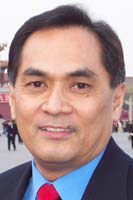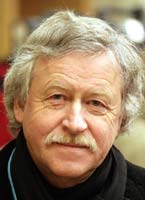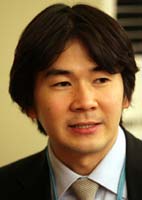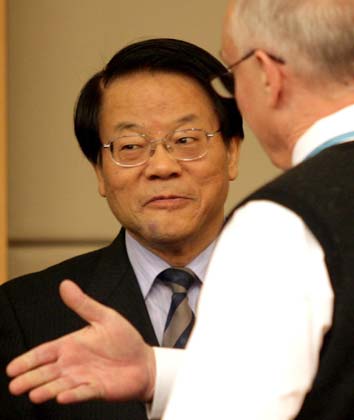Foreign journalists 'welcome in China'
By Zhao Huanxin (China Daily)Updated: 2006-12-29 06:59
|
|
The country's top information official yesterday said his office is a "constructive partner" to foreign journalists, whom he expects to report on China more objectively.
The State Council Information Office has not only been pushing publicity-shy officials to talk to the media, but also promised to help implement new regulations that give foreign journalists unprecedented freedom in reporting China.
Cai was speaking at the last press conference organized by the information office of the State Council China's cabinet this year, when it invited 59 ministers and vice-ministers to meet the media on 58 occasions.
Acknowledging "encouraging progress" made by the foreign media in covering China the volume of coverage rose by up to 40 per cent year-on-year Cai said the number of objective reports on the Chinese economy and society increased.
But, he said: "As for overseas reports on China's situation, I think the proportion of positive or totally objective stories is still quite small."
Some renowned press organizations have carried investigative reports and comments on China by those who had never been to the country or know little about it but base their reports on so-called material provided by some unreliable sources, he said. "I don't think this is responsible reporting."
He said the outside world has a keen interest in understanding China in a deeper and more wide-ranging format; and his office would better furnish the international community with what is being said, thought and done in China. In facilitating more accurate and objective reporting, the information office and foreign media are in a "constructive partnership," Cai said.
For one thing, Cai said his office would help non-Chinese reporters resolve problems they may run into in conducting interviews when the new regulations on foreign media take effect on Monday.
China issued a set of regulations on December 1 saying that when foreign journalists interview a person in the run-up to, and during, the 2008 Olympic Games, they only need the consent of the interviewee.
The statute removed some restrictions that have been in place since the Regulations on the Supervision of Foreign Journalists and Resident Foreign News Organs were issued in 1990.
"Many changes have taken place since 1990; we needed to bring the regulations up to date," he said.
 |
I hope they (the
government spokesmen) will spend time and effort to understand how we
foreign journalists operate, why we do things a certain way, why we need
information as quickly as possible. Jaime FlorCruz Beijing Bureau Chief, CNN |
 |
It is very good that the press gets a fixed person to contact and seek information from various departments and ministries. The system is very much like in any other country. Niels Peter Arskog Resident Correspondent & Beijing Bureau Chief of The Morning Paper of Iceland |
 |
We are happy that the
State Council started the spokesperson system to achieve transparency. I
am sure this will help our work. Joachim Holtz Far East China Beijing Bureau Chief of German Television ZDF |
 |
We believe China will
adopt a more open and active attitude to the media sector in the
future. Daisuke Fujiwara Correspondent of Beijing Bureau, Tokyo Broadcasting System |
"The Olympic Games provided us with a good opportunity to revise the regulations."
Cai pointed out that the statute does not limit foreign journalists to sports the scope of coverage may include politics, the economy, society, culture and other fields.
The new rules expire on October 17, 2008 but Cai hinted their validity might be extended.
"If the new regulations prove beneficial to our development and to exchanges between us and foreign media... then I imagine there will be no need to change the policy."
Cai, however, said it was his "personal view."
Click here for a list of spokespersons for government departments under State Council
|
||
|
||
|
|

